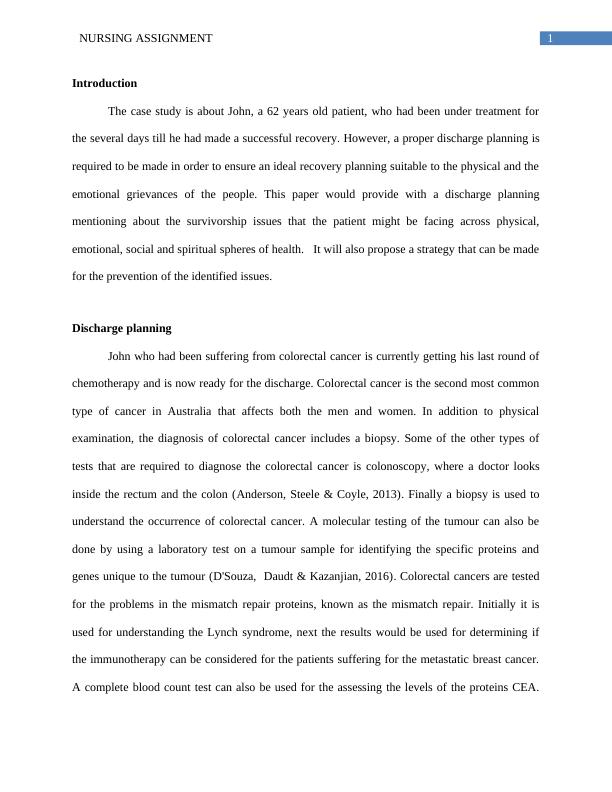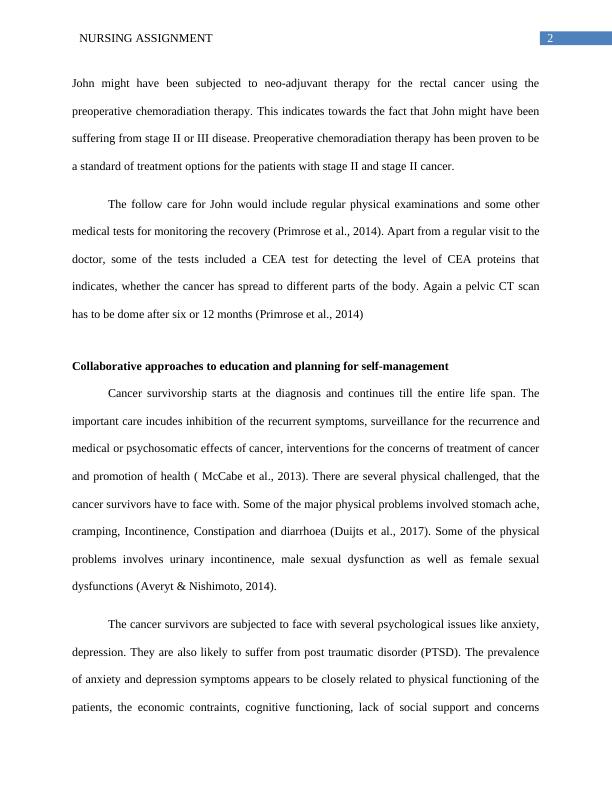Discharge Planning for Colorectal Cancer Patients
This assignment requires the analysis of individual, community, environmental and social factors that influence health beliefs and practices, and the evaluation and application of evidence-based models of health behavior change, health education, self-management support, and partnerships in health care.
9 Pages2019 Words68 Views
Added on 2023-03-31
About This Document
This paper discusses the importance of discharge planning for colorectal cancer patients, including survivorship issues and prevention strategies. It also explores collaborative approaches to education and self-management.
Discharge Planning for Colorectal Cancer Patients
This assignment requires the analysis of individual, community, environmental and social factors that influence health beliefs and practices, and the evaluation and application of evidence-based models of health behavior change, health education, self-management support, and partnerships in health care.
Added on 2023-03-31
ShareRelated Documents
End of preview
Want to access all the pages? Upload your documents or become a member.
Partnership in Health and Illness
|10
|2715
|84
Assignment on Colorectal Cancer
|10
|2438
|58



